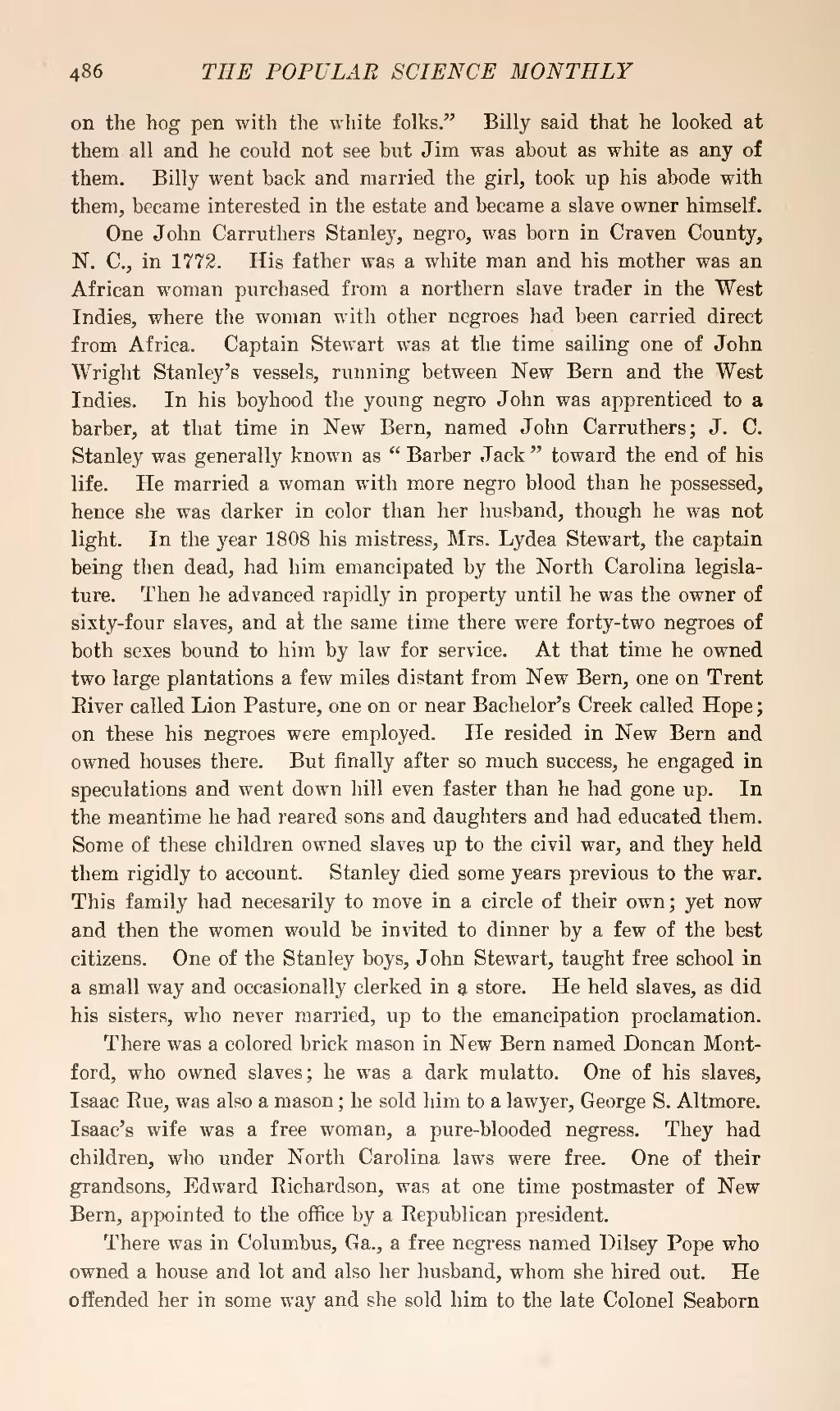on the hog pen with the white folks." Billy said that he looked at them all and he could not see but Jim was about as white as any of them. Billy went back and married the girl, took up his abode with them, became interested in the estate and became a slave owner himself.
One John Carruthers Stanley, negro, was born in Craven County, N. C, in 1772. His father was a white man and his mother was an African woman purchased from a northern slave trader in the West Indies, where the woman with other negroes had been carried direct from Africa. Captain Stewart was at the time sailing one of John Wright Stanley's vessels, running between New Bern and the West Indies. In his boyhood the young negro John was apprenticed to a barber, at that time in New Bern, named John Carruthers; J. C. Stanley was generally known as "Barber Jack" toward the end of his life. He married a woman with more negro blood than he possessed, hence she was darker in color than her husband, though he was not light. In the year 1808 his mistress, Mrs. Lydea Stewart, the captain being then dead, had him emancipated by the North Carolina legislature. Then he advanced rapidly in property until he was the owner of sixty-four slaves, and at the same time there were forty-two negroes of both sexes bound to him by law for service. At that time he owned two large plantations a few miles distant from New Bern, one on Trent River called Lion Pasture, one on or near Bachelor's Creek called Hope; on these his negroes were employed. He resided in New Bern and owned houses there. But finally after so much success, he engaged in speculations and went down hill even faster than he had gone up. In the meantime he had reared sons and daughters and had educated them. Some of these children owned slaves up to the civil war, and they held them rigidly to account. Stanley died some years previous to the war. This family had necesarily to move in a circle of their own; yet now and then the women would be invited to dinner by a few of the best citizens. One of the Stanley boys, John Stewart, taught free school in a small way and occasionally clerked in a store. He held slaves, as did his sisters, who never married, up to the emancipation proclamation.
There was a colored brick mason in New Bern named Doncan Montford, who owned slaves; he was a dark mulatto. One of his slaves, Isaac Rue, was also a mason; he sold him to a lawyer, George S. Altmore. Isaac's wife was a free woman, a pure-blooded negress. They had children, who under North Carolina laws were free. One of their grandsons, Edward Richardson, was at one time postmaster of New Bern, appointed to the office by a Republican president.
There was in Columbus, Ga., a free negress named Dilsey Pope who owned a house and lot and also her husband, whom she hired out. He offended her in some way and she sold him to the late Colonel Seaborn
